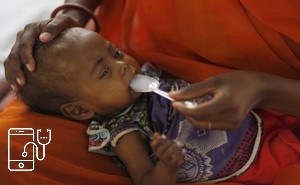Pediatric-disorders
PubMed: September 2023Seizures are common in neonates, but there is substantial
management variability. The Neonatal Task Force of the International League
Against Epilepsy (ILAE) developed evidence-based recommendations about
antiseizure medication (ASM) management in neonates in accordance with ILAE
standards. Seizures are the most common neu...
WHAT IS ASD AND HOW IS IT DEFINED
IN THE DSM-5?Autism spectrum disorder (ASD) is a
neurodevelopmental disorder with onset in early childhood that is associated
with a wide range of symptoms and ability levels. As defined by the Diagnostic
and Statistical Manual of Mental Disorders, Fifth Edition (DSM-5), Autism
Spectrum Disorder is a complex n...
Chronic cough-variant asthma (CCVA)
is a very common subtype of bronchial asthma among children population. This
condition often manifests with acute cough, chronic cough, and intractable
cough, especially at night. It has been reported that CCVA contributed 24.0% to
33.3% of chronic cough cases, and children alone accounted for the incidence o...
JAMA Pediatrics: Published on November 2022A Systematic Review and Meta-analysisTAKE-HOME MESSAGEAre shorter courses of
antibiotics as good as longer courses?This systematic review and meta-analysis assessed whether
shorter courses of antibiotics are noninferior to longer courses of antibiotics
for nonsevere community-acquired pneumonia (CAP) in...
The Pediatric Infectious Disease Journal:
Take Home Message:
Diarrheal
disease is a leading cause of childhood morbidity and mortality globally.
Rotavirus is the leading cause of
vaccine-preventable diarrhea among children under 5 and is associated with
approximately 28% of diarrheal deaths. The highest burden of severe disease and
d...
The Pediatric Infectious
Disease Journal:
Clostridium difficile is an important cause of
antibiotic-associated diarrhea and the most widely recognized diarrheal
pathogen acquired in healthcare settings.
Antibiotic or gastric acid suppressant exposure, gastrointestinal feeding
devices, and certain medical conditions, such as malign...
Key Information:
Respiratory
syncytial virus (RSV) is a leading cause of morbidity and mortality globally in
preschool children with acute lower respiratory infections.
Current
guidelines do not support the routine use of antibiotics in these children. However, higher incidence of bacterial co-infection with RSV
bronchopulmonary infe...
The study was conducted in Bangladesh among
malnourished children and highly appreciated among world experts. Full article
has been published in The New England Journal of Medicine.https://www.nejm.org/doi/full/10.1056/nejmoa2023294One Expert Comment: Written by David Rakel MD,
FAAFP Nutrition Is Mor...






